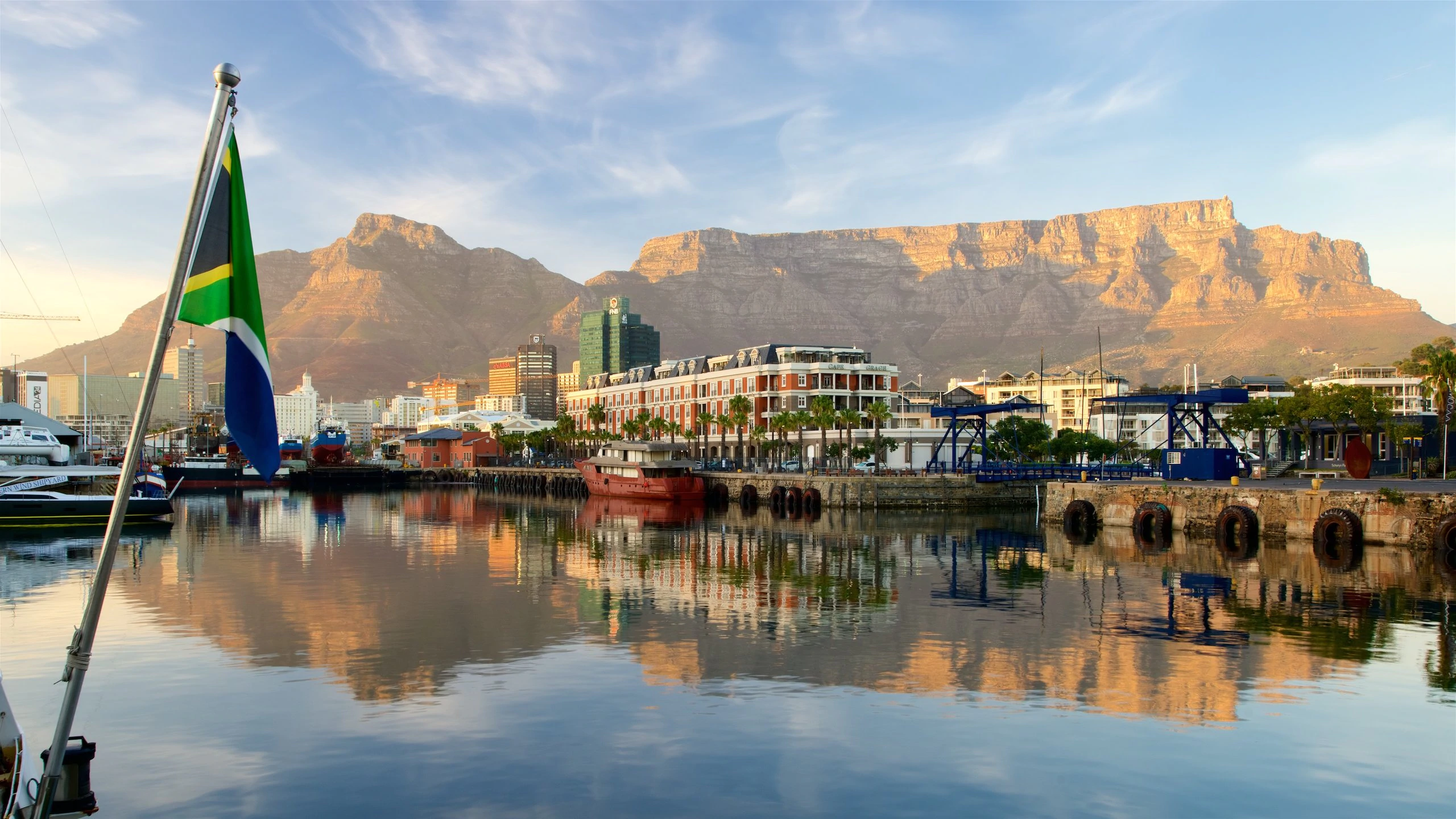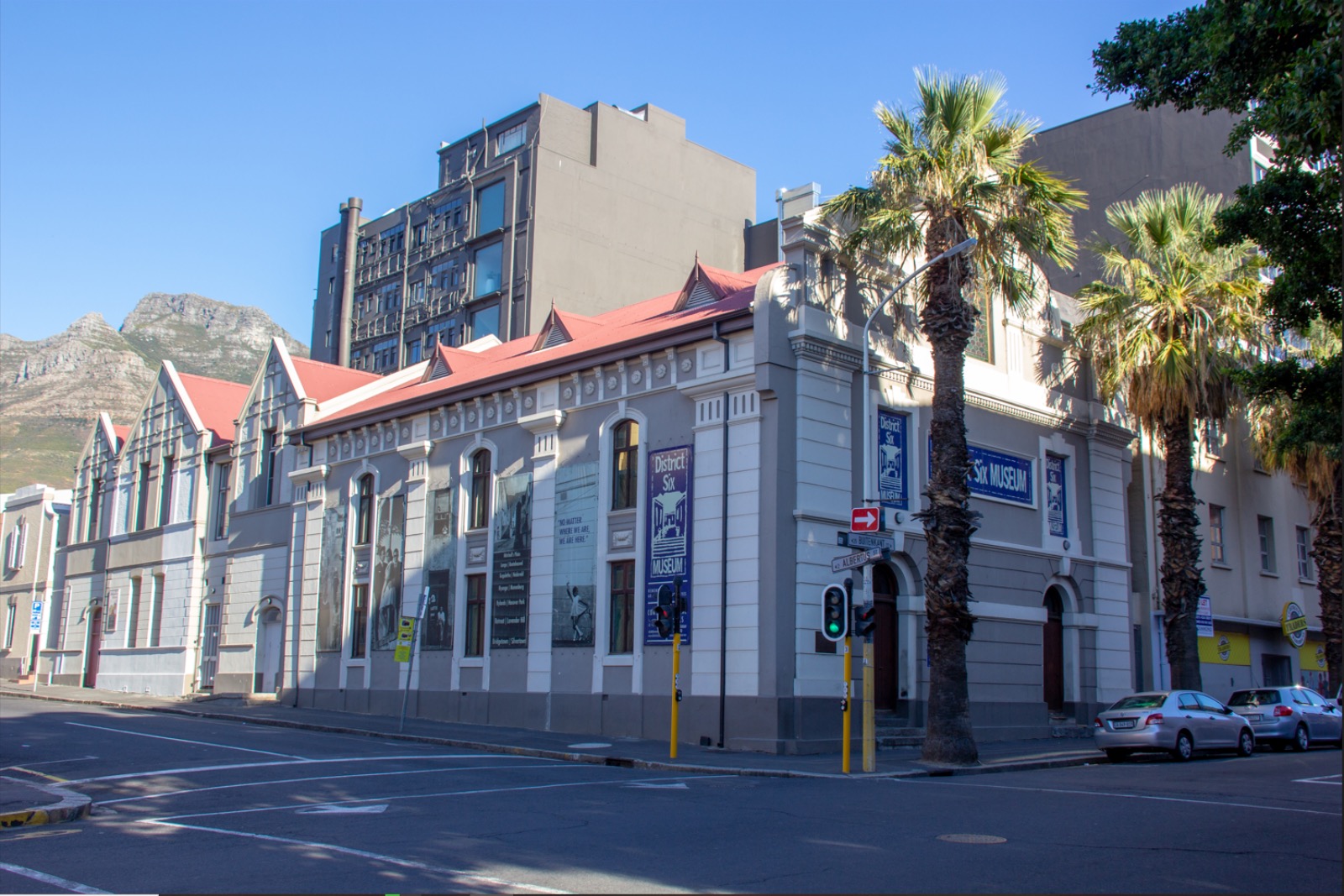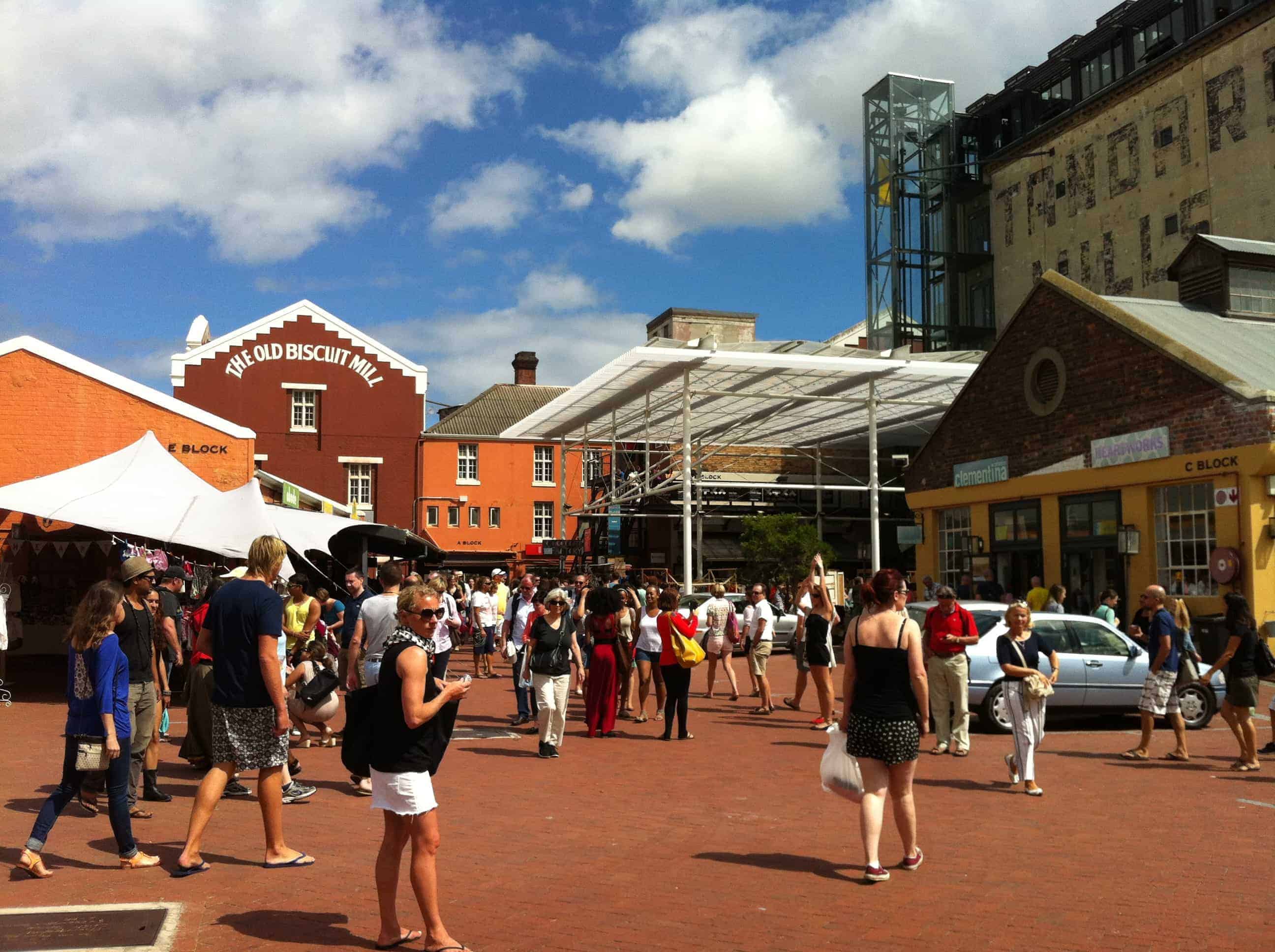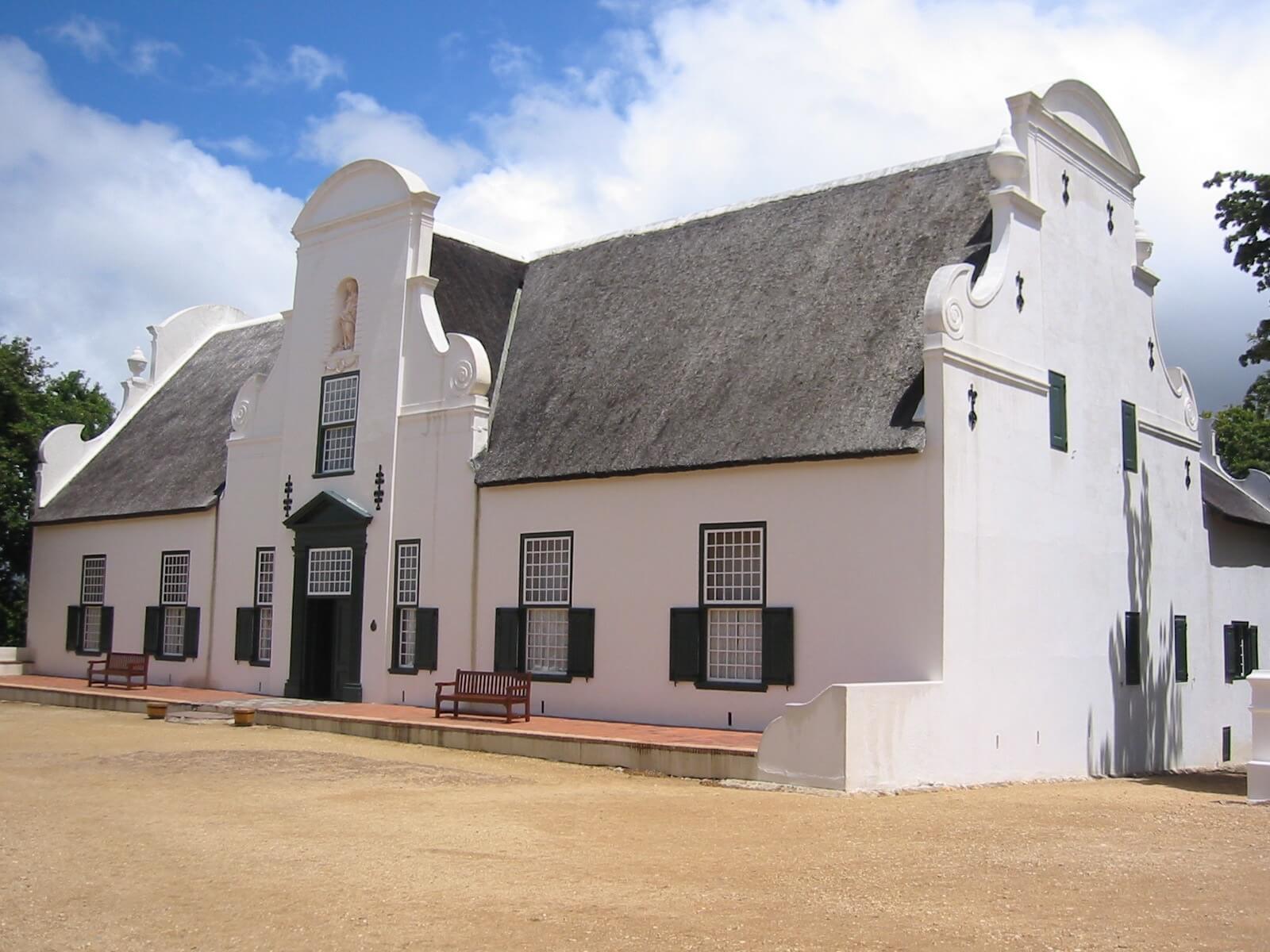
Boasting a stunning backdrop of Table Mountain, one of the New7Wonders of Nature, Cape Town is a paradise for nature lovers and outdoor enthusiasts. From the iconic Table Mountain National Park to the breathtaking Cape Point and the pristine beaches of Clifton and Camps Bay, the city is a treasure trove of natural wonders waiting to be explored.
In addition to its natural beauty, Cape Town has a fascinating history reflected in its architecture, museums, and cultural sites. Take a trip to Robben Island, where Nelson Mandela was imprisoned for 18 years, or wander through the vibrant neighborhood of Bo-Kaap with its colorful houses and rich Malay culture. The city's dynamic art scene, lively markets, and world-class restaurants also add to its allure, promising every traveler a diverse and enriching experience. Cape Town has something for everyone, whether you seek adventure in the great outdoors, delving into the past, or simply relaxing on sun-kissed beaches. With its unique blend of natural beauty, history, and culture, this vibrant destination is a must-visit for those looking to uncover the secrets of South Africa's Mother City.
Cultural Insights
Local Culture and Etiquette:
When visiting Cape Town, respecting and appreciating the local customs and traditions is essential. The people of Cape Town are warm, friendly, and welcoming, so showing politeness and courtesy is highly valued in their culture.
Here are some key cultural insights and etiquette tips to keep in mind during your visit:
- Greetings: Greetings are an important aspect of South African culture. When meeting someone for the first time, a handshake is the usual form of greeting. As a sign of respect, it is also expected to use titles like Mr., Mrs., or Miss when addressing someone.
- Respect for Elders: South African culture values respect for elders. Always address older individuals with respect and courtesy.
- Cultural Diversity: South Africa is a culturally diverse country with 11 official languages. Embrace the diversity and learn about the different traditions and customs of the various ethnic groups in Cape Town.
- Dress Code: While Cape Town has a laid-back atmosphere, it is essential to dress modestly when visiting cultural sites or local communities. Respect the cultural norms and avoid wearing revealing clothing.
- Table Manners: When dining with locals, waiting for the host to start eating before you begin is polite. Use utensils when eating, and avoid using your hands unless it is a traditional dish where hands are customary.
- Language: English is widely spoken in Cape Town, but learning a few basic phrases in Afrikaans or Xhosa can greatly show respect for the local culture.
Festivals and Events:
Cape Town is a vibrant city with a diverse cultural calendar. If you have the opportunity, consider attending one of these festivals or events to experience the local culture:
- Cape Town International Jazz Festival: This annual event is the most prominent jazz festival on the African continent and attracts world-class musicians and jazz enthusiasts from around the globe.
- Cape Town Carnival is a colorful celebration of music, dance, and parade floats that showcases Cape Town's cultural diversity. It is a lively event not to be missed.
- Cape Town International Kite Festival: Held in October, this festival features hundreds of kites of all shapes and sizes flying over the beautiful Cape Town skyline, creating a mesmerizing sight.
By embracing the local customs and traditions, you will not only show respect for Cape Town's culture but also have a more enriching and authentic travel experience.
 How to get to Cape Town
How to get to Cape Town
Air: Cape Town International Airport is the main gateway to the city, with numerous international and domestic flights operating daily. Direct flights are available from major cities around the world.
Rail: Cape Town is well-connected to other cities in South Africa by a reliable rail network. The Shosholoza Meyl offers long-distance train services to and from major cities like Johannesburg and Durban.
Road: If you prefer a road trip, you can drive to Cape Town from other parts of South Africa. The city is easily accessible by major highways, and many travelers enjoy the scenic drive along the Garden Route.
 How to get around Cape Town
How to get around Cape Town
Public Transport: Cape Town has an extensive public transport system, including buses and minibus taxis. The MyCiTi bus service is convenient for getting around the city and its suburbs.
Car Rentals: Renting a car is a popular choice for exploring Cape Town and its surrounding areas at your own pace. Several international car rental companies operate in the city, offering various vehicles to suit your needs.
Walking: Many of Cape Town's top attractions, such as the V&A Waterfront and Company's Garden, are easily accessible on foot. Walking is a great way to explore the city's vibrant neighborhoods and soak in its breathtaking views.
 What to see in Cape Town
What to see in Cape Town
 Hidden Gems in Cape Town
Hidden Gems in Cape Town
 Most Instagram-able places in Cape Town
Most Instagram-able places in Cape Town
What to do in Cape Town
Regarding activities and experiences, Cape Town offers diverse options catering to all kinds of travelers. Whether you're seeking adventure, cultural enlightenment, or relaxation, this vibrant city has something for everyone.
Adventure Sports:
For thrill-seekers, Cape Town is a paradise. You can try shark cage diving in Gansbaai, abseil down Table Mountain, kite surfing at Bloubergstrand Beach, or even paraglide off Signal Hill. The city's stunning natural landscapes provide the perfect backdrop for adrenaline-pumping activities.
Cultural Events and Festivals:
Cape Town is a cultural hub with various events and festivals throughout the year. Suppose you're lucky enough to visit during the Cape Town International Jazz Festival or the Cape Town Carnival in March. In that case, you'll be treated to incredible music, dance, and art performances that showcase the city's diversity and creativity.
Guided Tours:
To truly understand Cape Town's history and culture, consider taking a guided tour. Whether you opt for a walking tour of the historic Bo-Kaap neighborhood, a township tour in Langa or Khayelitsha, or a visit to Robben Island, where Nelson Mandela was imprisoned, you'll gain valuable insights into the city's past and present.
Shopping Districts:
For those who love to shop, Cape Town boasts a variety of shopping districts to explore. The V&A Waterfront is a popular choice with its mix of local boutiques and international brands. At the same time, the Neighbourgoods Market at the Old Biscuit Mill offers a more eclectic shopping experience with local designers and artisans.
Nightlife Options:
Cape Town comes alive with a vibrant nightlife scene when the sun sets. Long Street is famous for its bars, clubs, and live music venues, while Camps Bay offers a more upscale atmosphere with beachfront cocktail bars and restaurants. For a truly unique experience, head to the top of the Silo Hotel for panoramic views and craft cocktails at the rooftop bar.
What to eat in Cape Town
Cape Town is a culinary paradise, offering a diverse and vibrant food scene that will tantalize your taste buds. The city offers something for every palate, from street food stalls to world-class fine dining restaurants. Here are some must-try dishes and beverages to savor during your visit:
- Bobotie: A traditional Cape Malay dish made with spiced minced meat and an egg-based topping, Bobotie is a must-try for those looking to experience authentic South African flavors.
- Braai: South Africa's version of a barbecue, Braai is a social and culinary tradition that involves grilling meat over an open flame. To taste this beloved dish, head to a local market or join a Braai tour.
- Gatsby: A popular street food in Cape Town, Gatsby is a massive sandwich filled with various fillings, such as steak, chips, and salad. It's perfect for a hearty, on-the-go meal.
- Snoek Fish: Enjoy a taste of the sea with Snoek fish, a local favorite commonly served grilled or smoked. Pair it with some freshly baked bread for a truly delicious meal.
- Cape Malay Curry: Influenced by Cape Town's Malay community, this fragrant and flavorful curry is a must-try for spice lovers. It's typically served with rice, sambals, and various condiments.
Regarding dining options, Cape Town is brimming with choices to suit every budget and craving. For a casual and authentic experience, explore the city's markets and food stalls to sample various local dishes. Alternatively, indulge in a fine dining experience at one of Cape Town's award-winning restaurants, where talented chefs showcase the best of South African cuisine with a modern twist.
Whether you're a foodie looking to explore new flavors or simply seeking a taste of the local culture, Cape Town's culinary offerings will leave a lasting impression on your palate.
Where to stay in Cape Town
When planning your stay in Cape Town, a wide range of accommodation options cater to all budgets and preferences. Whether you are looking for a budget-friendly hostel, a cozy guesthouse, or a luxurious hotel, Cape Town has something for everyone.
- Hostels: For budget-conscious travelers or backpackers looking to meet other like-minded individuals, hostels in Cape Town offer affordable accommodation in shared dormitories or private rooms. Famous hostels like The Backpack or Once in Cape Town provide a social atmosphere and often organize tours and activities for guests.
- Guesthouses and Bed & Breakfasts: If you prefer a more intimate setting with personalized service, guesthouses and bed & breakfasts in neighborhoods like Tamboerskloof or Green Point are great options. You can enjoy a comfortable stay with a homely feel while exploring the surrounding areas at your own pace.
- Boutique Hotels: Cape Town is home to several boutique hotels that offer luxury and unique charm. Areas like Camps Bay or the V&A Waterfront boast boutique hotels with exquisite décor, impeccable service, and stunning ocean views or Table Mountain.
- Luxury Hotels: To indulge in the ultimate comfort and sophistication, luxury hotels in suburbs like Constantia or Clifton provide opulent accommodations, world-class amenities, and exceptional dining experiences. Treat yourself to a lavish stay with panoramic vistas and pampering spa services.
When deciding on the best area to stay in Cape Town, consider factors such as safety, proximity to attractions, and transportation. Popular neighborhoods like the City Bowl, Waterfront, or Sea Point are central locations with various accommodation options and convenient access to restaurants, shops, and cultural sites.
Regardless of your budget or travel style, Cape Town offers diverse accommodation choices to ensure a memorable and comfortable stay in this vibrant city.
 First Time Travelers
First Time Travelers
Visiting Cape Town for the first time can be an exhilarating experience with its diverse landscapes, vibrant culture, and rich history. Here is a beginner's guide to help you make the most of your trip:
Must-Do Activities and Sights:
- Visit Table Mountain: Take a cable car ride to the top for breathtaking city views and coastline views.
- Explore the V&A Waterfront: Shop, dine, and enjoy live music in this bustling area.
- Discover Robben Island: Take a ferry to this historic site where Nelson Mandela was imprisoned.
- Stroll through Kirstenbosch Botanical Gardens: Admire diverse flora in one of the most beautiful gardens in Africa.
- Drive along Chapman's Peak: Enjoy a scenic coastal drive with panoramic ocean views.
Practical Advice:
- Language: The official languages are English, Afrikaans, and Xhosa. English is widely spoken, so language barriers are minimal.
- Cultural Differences: Respect local customs, such as greeting with "hello" or "sawubona," and be mindful of traditional beliefs and practices.
- Transportation: Renting a car is recommended for flexibility, but Uber and metered taxis are also available. The MyCiTi bus service is convenient for getting around the city.
- Safety: Avoid petty theft in tourist areas and avoid walking alone at night. Stay informed of your surroundings and trust your instincts.
By following this guide and being open to new experiences, you'll be able to immerse yourself in the beauty and culture of Cape Town while navigating the city with ease.
 For Return Travelers
For Return Travelers
New and Lesser-Known Attractions
- Kirstenbosch Botanical Gardens: Nestled at the foot of Table Mountain, this beautifully landscaped botanical garden showcases a diverse collection of flora indigenous to South Africa. Stroll through its themed gardens and enjoy concerts held in the open-air theater.
- Bo-Kaap: Wander through the vibrant streets of this multicultural neighborhood known for its colorful houses and rich Cape Malay heritage. Immerse yourself in the area's history and culture by joining a guided walking tour or trying traditional Cape Malay cuisine at local eateries.
- Langa Township: Delve into the heart of Cape Town's social history with a guided tour of Langa, one of the oldest townships in the city. Interact with locals, visit community projects, and gain a deeper understanding of South Africa's apartheid past and the resilience of its people.
- Zeitz Museum of Contemporary Art Africa (MOCAA): Located in a repurposed grain silo at the V&A Waterfront, MOCAA is the largest museum of contemporary African art in the world. Explore its cutting-edge exhibits and diverse art collections, offering a unique perspective on African creativity and expression.
- Chapman's Peak Drive: Embark on a scenic drive along this breathtaking coastal road that winds between Hout Bay and Noordhoek. Stop at designated viewpoints to admire panoramic views of the Atlantic Ocean and rugged cliffs, making it a photographer's paradise.
Deeper Cultural Immersion Experiences
- Participate in a traditional Cape cooking workshop and learn to prepare authentic South African dishes such as bobotie, bredie, or koeksisters.
- Embark on a historical walking tour of District Six led by former residents who share personal stories and insights into the forced removals and vibrant community life that once thrived in this area.
- Stay with a local family in Gugulethu or Khayelitsha townships for a homestay experience that offers a glimpse into the residents' everyday life, traditions, and hospitality.
- Join a guided street art tour in Woodstock and Observatory neighborhoods, known for their vibrant graffiti and murals that reflect social commentary, cultural diversity, and artistic expressions.
Exploration Beyond Tourist Areas
- Take a day trip to the Cape Winelands and explore the historic towns of Stellenbosch, Franschhoek, and Paarl, known for their scenic vineyards, award-winning wines, and Cape Dutch architecture.
- Visit the Hout Bay Harbour and embark on a boat trip to Seal Island to witness the playful antics of Cape fur seals in their natural habitat or enjoy fresh seafood at the local fish market.
- Explore the Cape Flats area to gain insight into the diverse communities, social challenges, and grassroots initiatives that shape the cultural landscape of Cape Town beyond the city center.
- Discover the Oudekraal Beach and Twelve Apostles Mountain for a tranquil escape from the bustling city, ideal for picnics, snorkeling, hiking, or simply soaking up the natural beauty of the Cape Peninsula.
 Cape Town travel information
Cape Town travel information
City Map
Weather
-
January
Min
16°C (61°F) Max
26°C (79°F) Precipitation
3 days -
February
Min
16°C (61°F) Max
26°C (79°F) Precipitation
2 days -
March
Min
15°C (59°F) Max
25°C (77°F) Precipitation
4 days -
April
Min
13°C (55°F) Max
23°C (73°F) Precipitation
6 days -
May
Min
10°C (50°F) Max
20°C (68°F) Precipitation
9 days -
June
Min
8°C (46°F) Max
18°C (64°F) Precipitation
11 days -
July
Min
8°C (46°F) Max
17°C (63°F) Precipitation
12 days -
August
Min
9°C (48°F) Max
18°C (64°F) Precipitation
11 days -
September
Min
10°C (50°F) Max
19°C (66°F) Precipitation
8 days -
October
Min
12°C (54°F) Max
21°C (70°F) Precipitation
7 days -
November
Min
14°C (57°F) Max
23°C (73°F) Precipitation
4 days -
December
Min
15°C (59°F) Max
25°C (77°F) Precipitation
4 days
 AIdventuro's pocket guide for Cape Town
AIdventuro's pocket guide for Cape Town
- Table Mountain: Enjoy breathtaking views of the city from the top of this iconic landmark.
- Robben Island: Learn about South Africa's history with a visit to the former prison where Nelson Mandela was held.
- Kirstenbosch Botanical Gardens: Explore diverse flora and enjoy picnics in this beautiful garden at the foot of Table Mountain.
- Respect the local customs and traditions, such as greeting people with 'hello' in Xhosa.
- Learn a few words in Afrikaans or Xhosa to connect with the locals.
- Take part in a traditional braai (barbecue) for an authentic South African dining experience.
- Bobotie: A flavorful dish of spiced minced meat topped with an egg custard.
- Braaibroodjies: Grilled sandwiches with fillings like cheese, tomato, and onions.
- Malva Pudding: A sweet and sticky dessert served with custard or ice cream.
Cape Town is generally safe for tourists, but it's important to be cautious in certain areas, especially at night. Avoid displaying valuables and be aware of your surroundings.
For a 3-day budget trip, aim for around $200-300 for accommodation, meals, and transportation. For a more comfortable 5-day trip, budget around $400-$600.
The most popular thing to do in Cape Town is to take a cable car ride to the top of Table Mountain for panoramic views of the city and the ocean.




